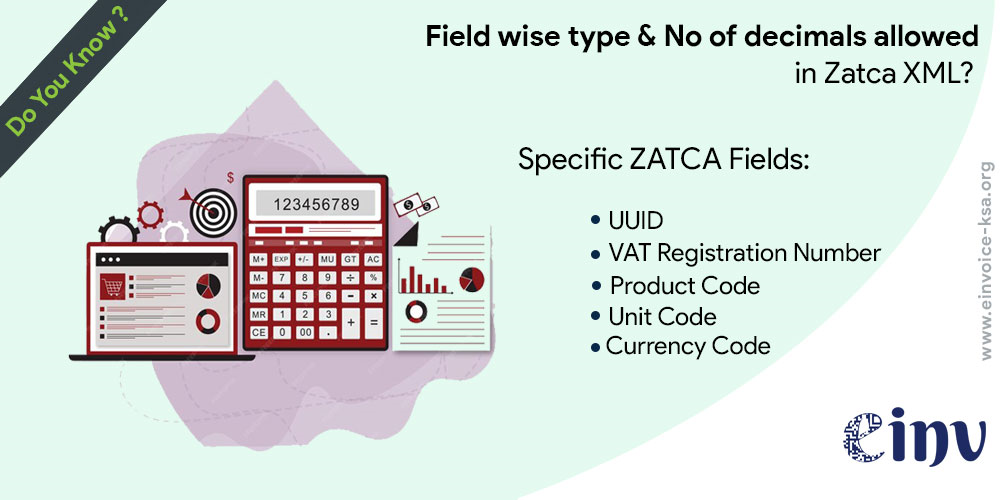
Specific ZATCA Fields:
1. UUID: Universally Unique Identifier, often used for invoice IDs or other unique identifiers.
2. VAT Registration Number: Represents the taxpayer's VAT registration number.
3. Product Code: Used to classify products or services according to specific standards.
4. Unit Code: Identifies the unit of measure used for quantities (e.g., KG, MTR, etc.).
5. Currency Code: Represents the currency used in the invoice (currently only SAR is mandatory).
· Decimals in KSA e-Invoice
Decimals play an important role while creating an invoice as most of the time, the price for a good or service will not be rounded off to a riyal. The ZATCA e-invoice XML implementation standard specifies the maximum decimals allowed.
The below table states the maximum number of decimals allowed:
Also, all the decimals shall be rounded off using “half-up” rounding. Suppose the 3rd decimal is exactly 5 or higher, then round up to the 3rd decimal, else round down to the 2nd decimal.
Also, the taxpayer shall follow the below rules to reduce the risk of differences due to rounding:
· All document level totals shall be rounded to two decimals for accounting.
· Rounding shall be done on the final calculations but not based on any intermediate results.
· VAT category tax amount shall be rounded on the document level but not as a summation of rounded invoice line VAT amounts.
· The taxpayer shall consider only significant decimals in the VAT rate, i.e. any difference in trailing zeros should not result in different VAT breakdowns.
When is it mandatory to add these key fields?
Note: Phase 1 is called the generation phase, whereas phase 2 is called the integration phase.
Request A Call Back
We will try and understand your system architecture & discuss details of what it will take for you to get 100% compliant.














